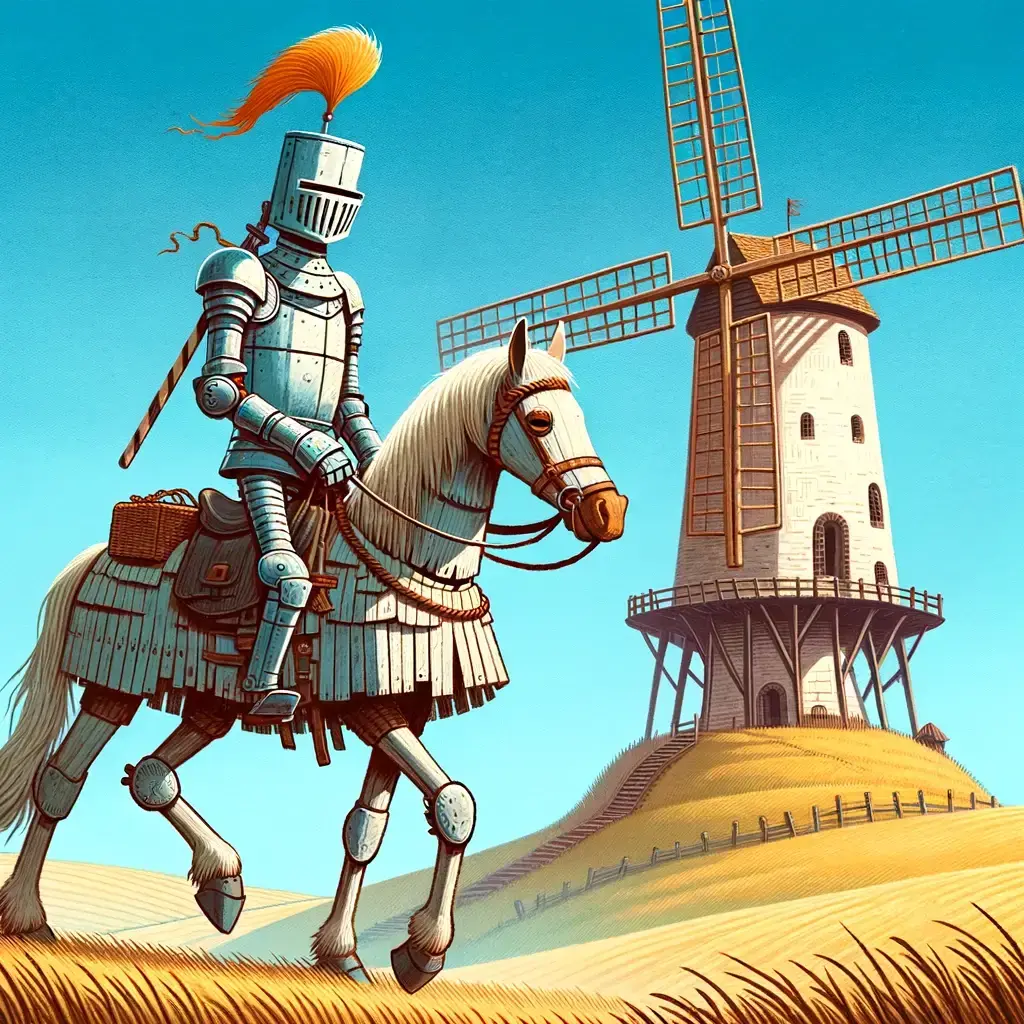The headline made me think I must be missing something. It’s not weird to me that games look better/more realistic over time. That’s the progression of technology.
So I watched the video, and… if I was missing something in the headline, I missed it in the video, too. I want my 6 minutes back, please.
thanks for saving me 6 minutes
Thank you for taking the hit so we dont have to
To summarize: the video opens on a series of games, each one progressively older, overlaid with a review of that game from the time it came out praising it as the best graphical fidelity of its time. Basically, they’re saying “Yes, graphics got better, but we always seem to conclude that they’re the best they will ever be”
So, I haven’t watched this yet but I just wanted to say this. I opened this video in an isolated, private tab. I’m not logged in, this is the algorithm in it’s default state. And litteraly the first video YouTube recommends me on the right of this one is a one hour and twenty-one minutes video called “Spider-Man 2 is Disgusting, Woke Propaganda”. YouTube’s default recommandation are still horrendously fucked and immediatly sends you to far right content…
That’s scary, it sounds like Youtube is following Facebook’s model of engagement.
Yeesh. Hard pass.
I mean, if your business is able to convert people to a mindset that is more supportive of your business and less likely to regulate it, and all your concerned about is making money, then this is the obvious choice is it not?
Eh, I was there. The games were OK.
The biggest change is that we put up with a lot more repetitive gameplay back then, just because that’s how games were and there wasn’t enough horsepower to make complex stuff.
Today, you blow through a level of a modern first person game, or whatever, and see only a tiny fraction of what the game makers created for you. I played Titanfall 2 for the first time recently, and after playing the same level a few times, I noticed that a room that appears only briefly as you take an elevator past it has an extension cord coiled up on the floor. You can only see it if you look down as the elevator goes up, so you can see the floor of the room.
Old games didn’t have the room for those kinds of indulgences.
Isn’t it weird that Homo Sapiens is smarter than australopithecine ?
Final Fantasy VIII, Half-Life 2, and Halo 4 were those games for me. Absolutely blew me away.
For me it would be Spider-Man, Cyberpunk 2077, and anything VR.
The polish of a Sony game, something I haven’t had since the PS2, on PC was refreshing. The absolute insanity of pushing the scale of a rendered world to make Night City something that feels genuinely huge. And expanding that into real-world space is something that I had dreams about as a child.
However the 3rd is a bit different for realism, as VR done well doesn’t need graphical fidelity (=/= resolution). Games that require it, like a painting simulator, sure, but there are games like Moose Life which just recreate the old arcade style of game. No realism needed. And this is where I begin to ramble some!
If I were to go back a generation, I’d say the list is much stronger in art-directed styles. The watercolor of Okami, the cel-shading of Borderlands - now timeless classics sheerly due to their artistic direction while other games of the same era are the subject of title. Opposed to Call of Duty or Battlefield, it’s clear that each generation with some stagnation “looks” better than those before it.
But again, what exactly is it that makes current day CoD or BF “different” from something like say, 2007 Crysis?
Crysis has a bit more aliasing. That’s pretty much it? This whole idea of “realism” in video games is just preposterous to me because there are so many examples of amazing art, and then there are drab games aiming for “visual realism” which could have been something much more impressive. Crysis not only pushed the hardware of its time but it also made stylistic choices which have kept the game visually relevant.
I think another example somewhat fitting into this is games like Horizon Zero Dawn and Death Stranding - clearly more cartoonized games that are surrounded by a world influenced by realism, but rather than focusing in on what visually is most realistic they aim for stylistic choices. I would say that GTA 5’s story somewhat falls in here as well, but it’s something that RDR2 fails at exceptionally for me. On the flip side, the Darksiders series just doesn’t mesh with me stylistically, while Elden Ring is everything that I felt Darksiders could have been (visually). But even Elden Ring is just a few lines more detailed than a game like Dragon’s Dogma: Dark Arisen - render distance taking away from DD:DA’s “realism”, something that Elden Ring particularly shines at.
Ultimately I think this sort of thing comes down to our subjective perceptions. When I was a kid I played a lot of 2D side scrollers and pixel art games, I got a PS2 and experienced a lot of 3D and 2D platformers, and then the PS2 was stolen and I was relegated to flash games until the Wii. I experienced such a wide range of games before the age of 10 that now as an adult I find the aesthetic of a game to be just as important as the gameplay or its story. Quite frankly, I don’t really care if a game looks like Heavenly Sword or Darksiders or some abstract blobs and hitboxes. If it’s designed well, I’m interested, although I do have a harder time with 2D pixel games these days (the Steam Deck helps! It’s the feeling of the right console for the right game that usually prevents me from playing them on PC)
It seems a shame that even today this discourse of “best graphics or bust” is still around. It’s always been surrounding the console war culture and invades games that it had never been an issue for before, but seems nonexistent when realism actually fits a genre. For example, the graphical fidelity of Monster Hunter: World is beautiful but very out of place for the MH series, aiming for “realism”. They did a great job stylizing the game but it doesn’t detract from the more animated MH games.
Now, almost any horror game ever. So many of them push for visual realism because that’s how to get the most effective shock from gore, meanwhile there are some games that are clever about their horror, like Outlast using the perspective of a camera with night vision. Realistically, I think a game like this, or Phasmophobia, or Hellblade Senuas Sacrifice show that horror games don’t entirely need realism and too many use it as a crutch.
I don’t really think realism is “necessary” for any game with a strong art direction, and more often than not the art direction is what keeps the visual strength of a game relevant. That said, I think there are good examples of realism that have existed, but ultimately they seem likely to fade away until a remaster comes to remind a new generation of gamers that it exists, whereas a game with strong art direction seems to tend to have more staying power.
Finally - what is realism, anyway? Photorealism? And how much does realism affect immersion, since that seems to be a component?
RDR2?
Mirrors Edge?
Horizon Zero Dawn/Spider-Man?
Hitman 3?
Call of Duty?
Crysis?
Fallout/Outer Wilds?
Ace Combat?
Counter Strike?
Far Cry?
Alien Isolation?
To me, all of these stray pretty far from “realism” if the definition is avoiding things that look animated? Like the character models or aspects of the surrounding world. I feel like if I were so focused on realism then I would be distracted by the foliage of RDR2 or the animated models of Fallout/Cyberpunk 2077. However other aspects of those games look absolutely incredible, but don’t always mesh with the rest of what’s going on. This is why I feel that art direction is just more important than “realism” - because photos in 2077 just look better with the character models and the world matching than RDR2 does with it’s semi-realistic but still animated human characters in a semi-photorealistic world but it’s still pixelated grass and dirt so there’s obvious spots where a screenshot is a video game, not a photo. Sorry, that was a mouthful!
I guess what I’m getting at is what exactly does attempting visual realism bring to a game that proper art direction wouldn’t do just as well?
Is it just the innate desire to get movies as playable games?
unless they’re switch & mobile ports*
As a kid in the 90s, I couldn’t really tell the difference between the capabilities of the SNES or Genesis and a hand-drawn cartoon on TV. As far as I could tell, if it was 2D, those machines could process it, but my brother and his friends just a few years older than me could tell where the limits were. When Mortal Kombat got big, I thought that was the end state for video game graphics. Everyone’s just going to do that, because you can’t get more real than real people, I thought. Early 3D graphics did age more poorly than the best pixel art the SNES and Genesis had to offer, and we knew at the time that that would be the case too. After years of revisiting those 2D games via emulation, a trip to a local Barcade reminded me of how important scanlines were to the art style of most games from the era, and now I basically only emulate those games with scanlines on and the most accurate emulation available when I’m playing anything earlier than the PS2.
Half-Life 2 was insanely impressive, and the thing that sold it most was the big real-time G Man head at the beginning of the game. Valve took cutting edge research in animating faces during dialogue and implemented it into the game in a way no one had seen before. It did wonders for selling the “realness” of what you were looking at. Just 3 years later, we had Crysis, a game pushing graphics so far that no one could even build a machine that could run it at max settings at the time, but even on medium settings, it was the best-looking game I’d ever seen.
Nowadays, I can look at a Digital Foundry video with side by side examples of ray tracing on and off, with them explaining to me how and why it’s so much better, and I often can’t really tell the difference unless I squint. I did see an Alan Wake II example that seemed pretty noticeable, but mostly only in the side-by-side, and if I was in the market for Alan Wake II, I likely wouldn’t notice what I was missing when ray tracing is turned off. The things that make games look best to me now are when they can add all of that fidelity to the textures and animations of human beings, like in Death Stranding, because we’re wired to more easily detect when a human being isn’t real than anything else.
Great video, thanks!








